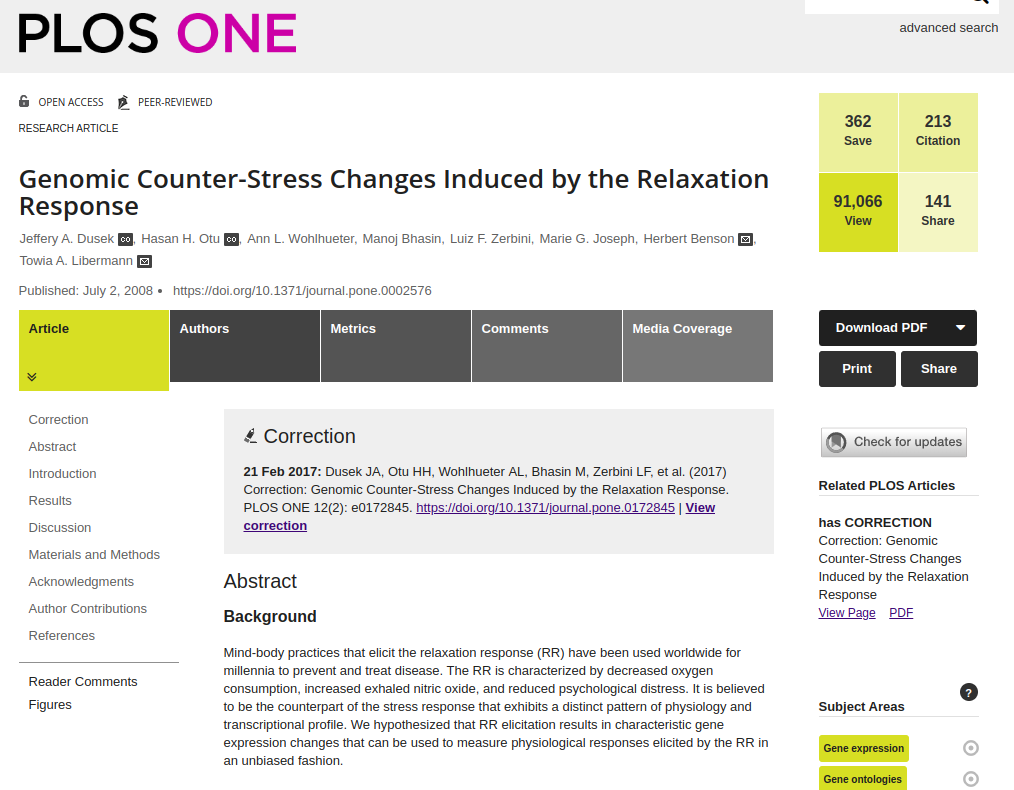Publication
PLOS ONE
Abstract
Mind-body practices that elicit the relaxation response (RR) have been used worldwide for millennia to prevent and treat disease. The RR is characterized by decreased oxygen consumption, increased exhaled nitric oxide, and reduced psychological distress. It is believed to be the counterpart of the stress response that exhibits a distinct pattern of physiology and transcriptional profile. We hypothesized that RR elicitation results in characteristic gene expression changes that can be used to measure physiological responses elicited by the RR in an unbiased fashion.
Web and Email Links
Related Listings
Journal
Developmental Medicine and Child Neurology
To assess the efficacy of electromyographic biofeedback, relaxation-response training and pain behavior management as a treatment for pediatric migraine, we studied 18 children between the ages of eight and 12 years (mean = 10 X 1) in a prospective, randomized, controlled investigation. Six patients received all three treatment procedures, six received relaxation-response training and pain behavior management, and the remaining six constituted a waiting-list control group. All patient […]
Journal
Psychotherapy and Psychosomatics
The effect of a 10-week meditation program on 20 patients who were undergoing long-term individual explorative psychotherapy was studied. Change in the psychological well-being of the patients and the impact of the program on the process of their psychotherapy was evaluated. Results obtained from the patients’ self-ratings and the therapists’ objective ratings demonstrated a significant and substantial improvement in most measures of psychological well-being.
Journal
The International Journal of Psychiatry in Medicine
It is hypothesized that situations requiring continuous behavioral adjustment activate an integrated, hypothalamic response, the emergency reaction. The frequent elicitation of the physiologic changes associated with the emergency reaction has been implicated in the development of diseases such as hypertension. Prevention and treatment of these diseases may be through the use of the relaxation response, an integrated hypothalamic response whose physiologic changes appear to be the cou […]

